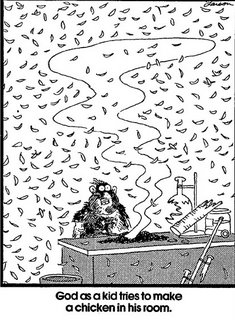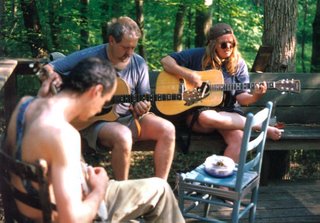
Someone asked me once: Is atheism devoid of meaning?
I take issue with the term itself. Atheism can mean different things, depending on your view. The term is derived from ancient Greek’s atheos, meaning without gods. Later on it became a more definitive “ungodly,” or basically, “immoral.” My thought is that since the term was created by the religious to marginalize those who seem to fit into a certain category, to a certain extent, anyone identifying themselves as an atheist will always be allowing someone else to define how they believe.
Put it this way: To some Muslims, any non-Muslim is an "infidel." Or non-believer. Very few of these so called infidels would be willing to allow this definition to go unchallenged, I think. But why should any non-believer of the Muslim religion have to explain his spirituality in the context of Islam? Likewise, why should anyone who doesn't consider themselves "Christian" have to explain their spirituality, worldview, or anything in the context of Christianity?
In my view, atheists only exist in the context of Christianity. For all we know, there is a god or gods, who consider the search for knowledge the greatest spiritual practice. If the earth was seeded with life by a fairly superior alien race, would they also not be gods? Simply believing that our universe started with a big bang might be considered a religious view, depending on the context.
Which is why I think that anyone identifying themselves as "atheists," are allowing their beliefs to be defined, (or undefined) by a religious group. Because of this, the religious group will always have a skewed perception of who you are and what you believe in, because you have been categorized into a package that they find easier to deal with.
They see Christians, Jews, Muslims, other "major" religions, sects, atheists and agnostics. They do not see how each of us creates his own belief system based on experience, upbringing, learning, soul searching, etc. And certainly, many of them do not understand how it is possible for someone who does not identify themselves as Christian, Jew, Muslim, etc. to have a spiritual belief, in some fashion or the other.
Even the very open-minded religious person can fail to make this connection. When people asked me what I am religious-wise in the past, I used to say "atheist" or "agnostic" depending on my mood, because my belief structure is constantly changing. Were I to define myself solely through a Christian lens today, I'd probably say agnostic. But to many, the term no longer represents what its coiner, 19th-century British scientist Thomas H. Huxley, meant, that: "only material phenomena were objects of exact knowledge."
In modern parlance, it means you are non-committal and need to be saved.
So today, when someone asks what I am, I’ll usually say I'm a "Davidist," after my first name. It explains everything.




